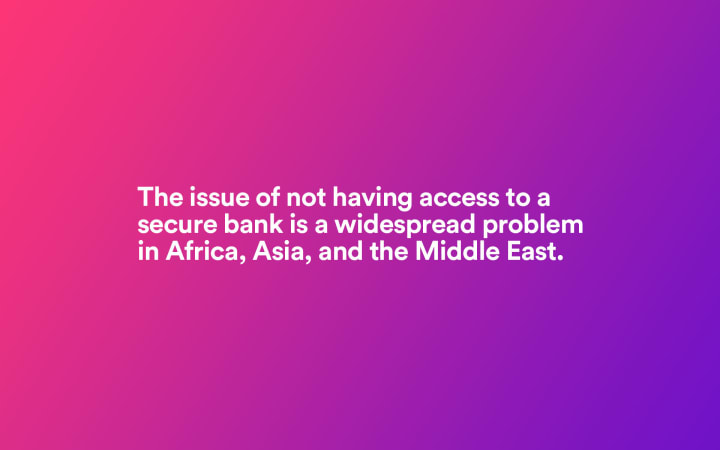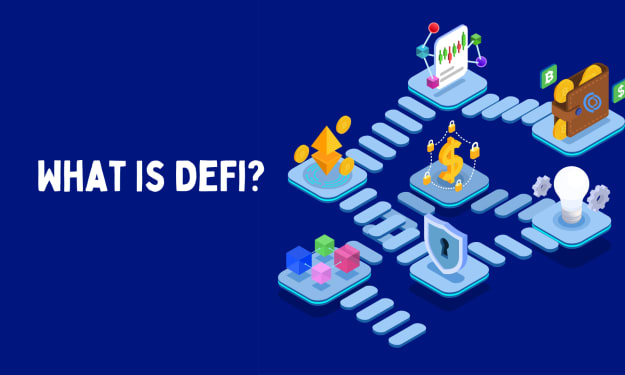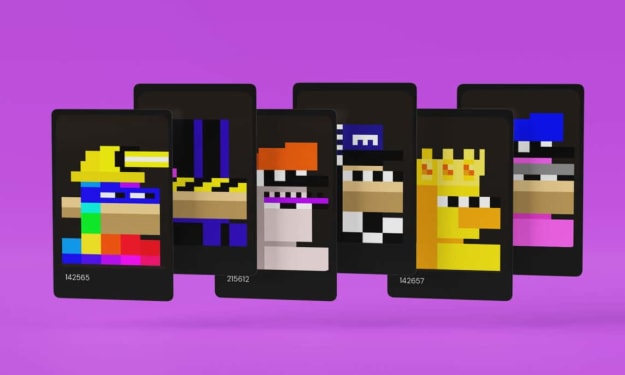How Initial Bounty Offering Can Help the Unbanked
No bank account? No problem, if you choose to work with an Initial Bounty Offering.

If there's one thing that should make traditional banks shake in their shoes, it's the way that it's making people reexamine traditional banking. Cryptocurrencies have rapidly evolved into their own economy, and the technology around them has also has created new forms of banking that would have been unheard of only a couple of years ago.
One of the newest forms of banking to hit the world is called an Initial Bounty Offering, also known as an IBO. IBOs are blockchain-based financial platform concepts similar to ICOs—with the addition of a marketplace and participation built into it.
CoinTelegraph explained IBOs this way:
"An IBO can offer bounties for services, user inputs, products and any other work the platform needs to grow. They can be calculated using real-world raw costs and inputs or by standards set out by network founders."
The concept of an IBO, which blends crowdsourcing work, resources, and business development together into its own token-based economy, might be the new way that disadvantaged communities overcome the strict requirements that banks are known to have.
Wondering how IBOs could help the world's disadvantaged? Here's what you need to know.
Here's the problem with traditional banking—and why cryptocurrency is different.
Traditional banking may seem pretty "standard" to Americans, but over 2 billion people on this Earth cannot make the standards to get a bank account. Whether it's due to not having enough money to deposit, or not having the right documentation, traditional banking is rigid and exclusive.
In the event of a person trying to take out a business loan, a traditional bank would require a minimum credit score, a down payment on the loan, and much, much more. Most people simply can't afford to do this, and this causes many communities to lose out on business opportunities and abundance.
Who does this affect?

If you live in the United States, you might not know anyone who is turned away from banks. However, this doesn't mean that no one can't have a bank account in the country. According to at least one study published on Fortune, around one out of every five Americans is underbanked.
The issue of not having access to a secure bank is a widespread problem in Africa, Asia, and the Middle East. The people who it affects the most are often the people who need proper banking the most, which makes it even worse.
An Initial Bounty Offering would allow people to gain more opportunities, sell products to others, and also create roles for themselves in a global economy.
An IBO can offer a variety of bounties for all sots of different goods and services. Users in an IBO can collect bounties in a multitude of different ways, and how users get the tokens they want varies on skills and wealth.
For example, a bounty hunter could easily just start completing bounties in exchange for tokens during the Initial Bounty Offering session. On the other hand, a benefactor may buy bounties using real cash and receive tokens to spend in return.
Tokens can be gotten for promoting the IBO, making additional platforms for it, and more. It's an economy within an economy, and once tokens are earned, they could be exchanged for real currency.
So far, it sounds like an Initial Coin Offering, right?
Well, it's not. An Initial Coin Offering system has a much smaller market cap, while an Initial Bounty Offering grows with its economy. ICOs also don't have participation and commerce built into it on the same level that an IBO would have.
Since an ICO tends to have a small cap, it's very easy for wealthier and more advantaged people to skew to markets in favor of them. This can end up causing disadvantaged groups to get excluded.
An Initial Bounty Offering has an advantage that can make it a new way to gain stability in unstable parts of the world.
The majority of people who are considered "underbanked" do not have the credentials to get a bank account. This is just the way that banks are. However, they still are able to access the internet—and that's exactly the advantage they need in order to participate in a cryptocurrency economy.
By giving people Initial Bounty Offering tokens, they can participate in an economy digitally, without having the traditional financial means to do so. This, in turn, opens up more opportunities for them.
Therefore, it wouldn't be a question of which cryptocurrency would be next to boom. Investing wouldn't be the issue; it'd be a question of, "What do I want to buy on the market?"
Unlike bank accounts, IBO accounts can easily transcend borders.

Keeping up to date with a bank account that was created in another country is just not doable for many people. This is particularly true in areas that are affected by political instability, or in the countries where being a refugee may be a fact of life.
Since an Initial Bounty Offering has no borders and also functions as a decentralized currency, it also would allow those who may have to flee their home a lot more security than fiat money might be able to.
What makes an IBO such an amazing thing is that it welcomes participation and removes roadblocks.
The vast majority of underbanked people face major disadvantages that prevent them from fully participating in their economies right now. These include a lack of currency, a lack of security in government, as well as a lack of credibility when it comes to loads—just to name a few.
An Initial Bounty Offering is the easiest way to reduce most of these factors and offer people a decentralized way to participate in an economy, buy goods and services, as well as survive.
Here's how an Initial Bounty Offering can be turbocharged.
Participation and decentralization are already great news for disadvantaged individuals, but it can get even better when paired with a digital asset converter network or a financial management platform that allows people to manage their money quickly and easily.
It wouldn't take much to see a pairing like U.CASH with an IBO turn the world upside down. This kind of pairing could easily turn an IBO into the bank that the world's underbanked have been wanting to have—and that could mean wonders for the global economy as a whole.
IBOs would take time to actually develop to that point.
The big issue is that the concept of an Initial Bounty Offering is just beginning to hit the cryptocurrency world—and it would take a group effort to create ones that work, grow, and thrive the way they should.
They've already been saying that Bitcoin could end world poverty. The truth is, if it were in the form of an IBO, it'd be much more certain to do so.
However, if you consider the facts, it's looking like the future will be bright for those who invest time in an IBO.
Should groups start collaborating on a massive Initial Bounty Offering, it could easily make banks become increasingly irrelevant. Heck, in the cryptocurrency world, an IBO may end up being the tool that most people seek financial services through.
The day of reckoning has arrived for traditional banking, and that means inclusivity will once again reign supreme. If you ask us, that's a pretty bountiful future to look at.
About the Creator
Ossiana Tepfenhart
Ossiana Tepfenhart is a writer based out of New Jersey. This is her work account. She loves gifts and tips, so if you like something, tip her!






Comments
There are no comments for this story
Be the first to respond and start the conversation.